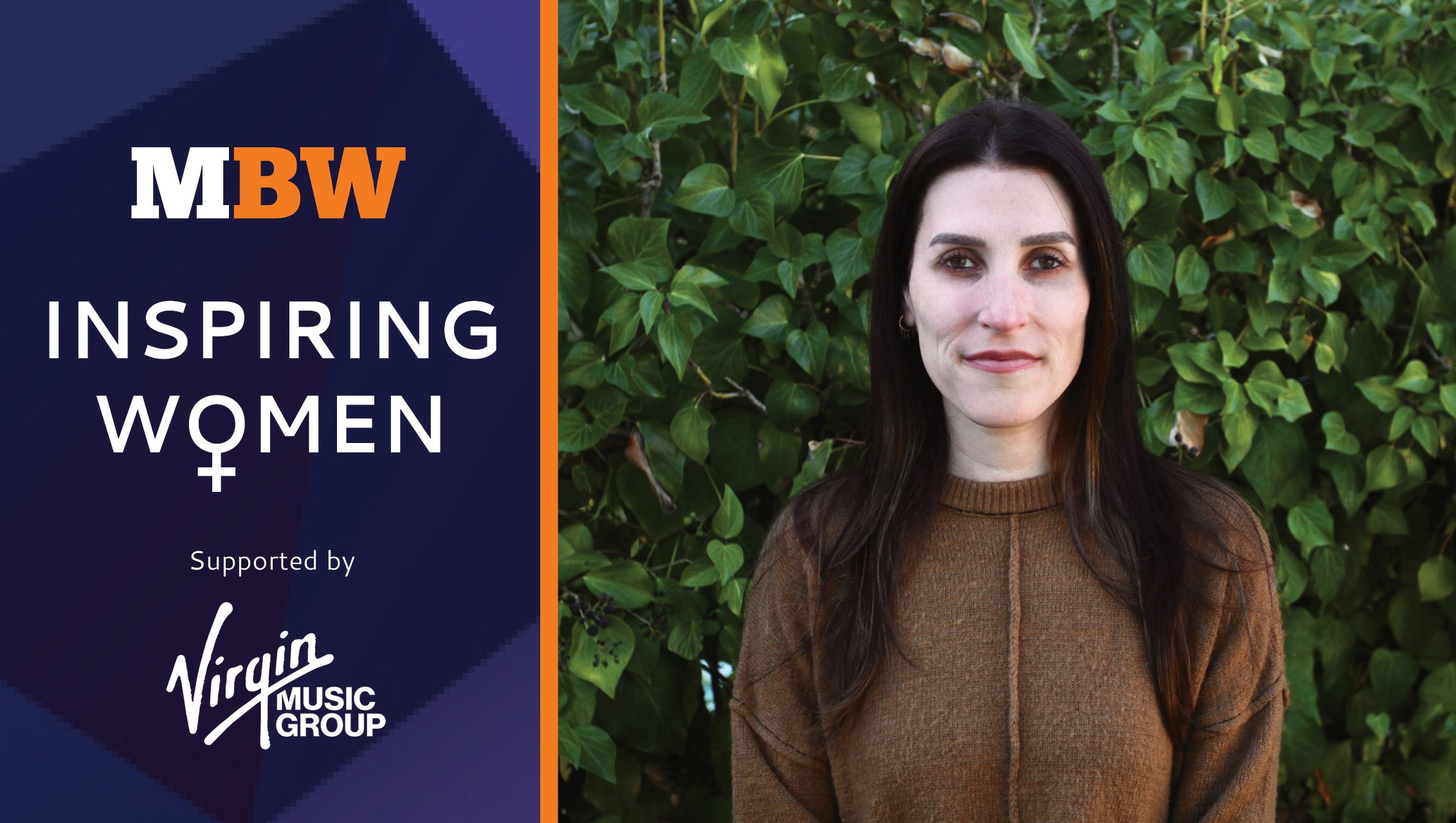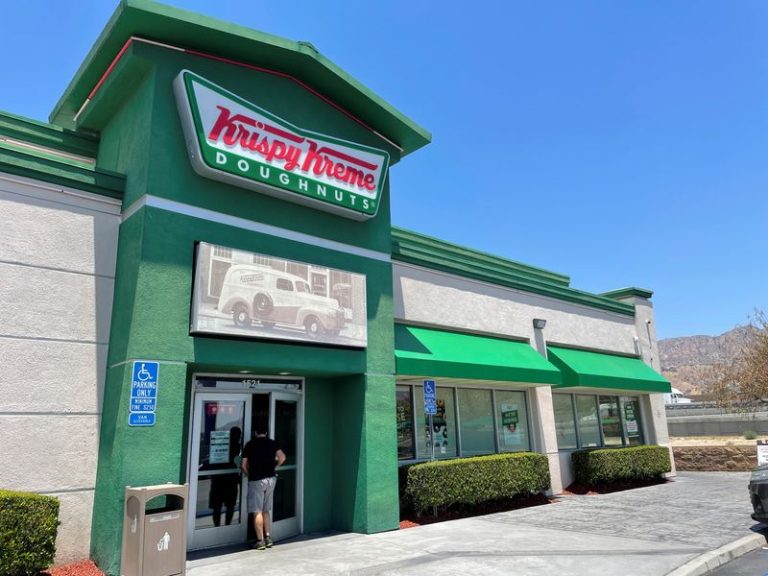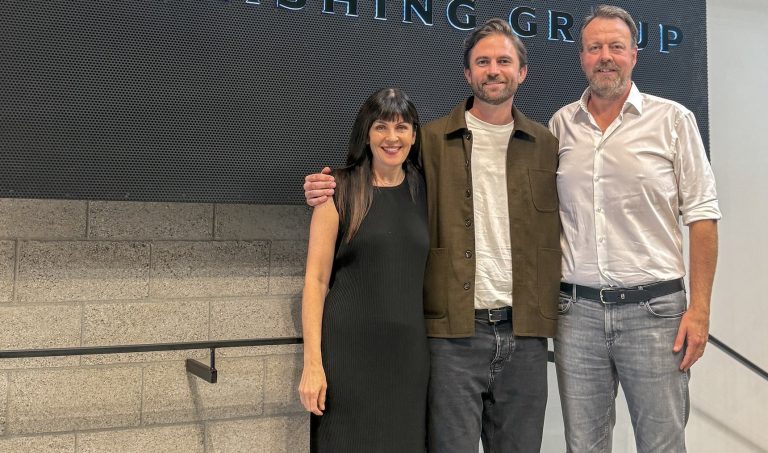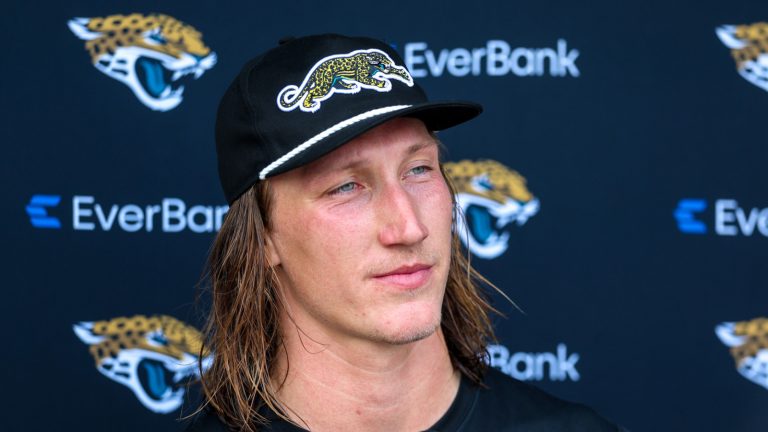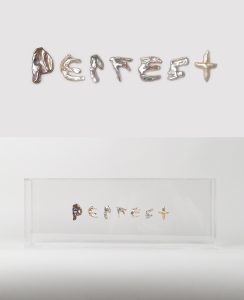MBW’s Inspiring Women series profiles female executives who have risen through the ranks of the business, highlighting their career journey – from their professional breakthrough to the senior responsibilities they now fulfill. Inspiring Women is supported by Virgin Music Group.
Amanda Hill got every teenage rock music fan’s dream job when landing an internship aged 19 at what was then called Warner Bros. Records, straight out of school, during the famed Tom Whalley era.
The label was riding high off the back of multi-million-selling albums, including US No.1s like Green Day’s career-defining American Idiot and Meteora by Linkin Park. New acts who were breaking through at the time with top-charting albums included My Chemical Romance, The Used, and Taking Back Sunday.
Hill remembers: “It was magic. There were so many new artists breaking through and Green Day were in the building every day. It was an amazing time for music. There was an open door to ask questions, learn and be part of the magic that was happening there.”
Hill, who had developed her music taste through the underground punk scene in LA, spent her days ordering Van Halen catalogue to listen to at her desk. When offered the choice to continue studying, she politely declined, and eventually made her way down the hall to the A&R apartment, where she got hired as an assistant.
Two years passed at Warner before Hill moved over to publishing at EMI, where she stayed for nearly 20 years. During that time, which spanned the merger with Sony, Hill worked with songwriters and artists including Greg Kurstin, Miley Cyrus, Ryan Tedder, Johnny McDaid, and Sarah Aarons.
She left as SVP of A&R in 2023 to become President, A&R and co-Chief Creative Officer at Runner Music — the joint music venture of OneRepublic’s Tedder, veteran music manager Ron Laffitte, and Andrew Sparkler (who was formerly Chief Business Officer at Downtown Music).
There, Hill has spent the last two years helping to build the publisher from the ground up, during which time its roster has grown to 17 creatives.
Some of those include Tyler Spry, who has written for Bad Bunny and d4vd, Tedder and Grant Boutin – who’ve recently been working with Tate McRae – and Alexander 23, who has cuts on Reneé Rap’s upcoming second album.
Here, we chat to Hill about the publishing business, her ambitions, her approach to A&R, lessons learned across her career, and much more besides…
WHEN YOU JOINED Runner Music, you said that you wanted to help create the future of publishing. What does that look like?
The answer nods back to the early 2000s when there were far less songwriters and producers. The future of publishing, at least for Runner, is taking it back to an individual basis and true songwriter development. It’s a game of inches, as well, so taking the big swings.
“I have the luxury to not have to worry about market share so I can just really think about people.”
For us, I have the luxury to not have to worry about market share so I can just really think about people. The future of publishing is about people and helping them elevate their careers and reach their goals. It’s been really fun to be able to do that one person at a time.
What impact have you seen the changes in publishing over the last two decades, like the increased number of songwriters, have on the industry?
The way that artists have started making music goes [hand-in-hand] with there being more writers and producers. Both things grew at the same time. There’s more opportunity for both sides and the growth is amazing.
There’s just so many more people with different skill sets and abilities who are being able to create every day. There’s space for everybody. In the earlier days, there were fewer projects so there were fewer people doing it.
What are your ultimate ambitions for Runner Music? Where do you see the company in five-to-10 years’ time?
It’s a company that’s growing. I quickly realized it’s a place with the reach of a major but where you can have a familial setting, real relationships, real service and a true publishing partner.
I’m excited to grow into other genres of music, one person at a time. In the beginning, we were fairly pop-focused and we’ve got a couple of people in country music. I’m excited to grow our team and to be an answer to people who are seeking an alternative to what the current options are.
What are the biggest lessons that you’ve learned across your career?
The biggest lessons I’ve applied to my career came to me before I started working in the music business, which are really simple things. Treat people how you would like to be treated and reply to people. They’ve gotten to me to where I am so I stick to them. Everything comes back around and none of it is that deep. Be kind, do good business, and, hopefully, good things will happen.
What’s the best career-related advice that you’ve been given and who did that come from?
I’ve been lucky to get a lot of advice from a lot of really incredible people. The base of it comes back to the people who hired me at EMI, Matt Messer and Dan McCarroll.
I don’t know if it was specific advice but those people showed me how to be great, how to treat people and how to walk in this business. They were such great mentors to me and such good men that they really set the foundation of how I wanted to be towards others.
I’m grateful to both of them. They showed me how to be a great leader, how to be a great executive, how to stand up for your team and how to stand up for your writers. The types of people they are shaped who I became.
What would you say your approach is to A&R and getting the best out of the creatives you’re working with?
It’s based on three things: trust, relationship and accountability. If you don’t have any of those things, you can’t really succeed as an A&R person.
I also think you have to be fearless, not be afraid of hearing the answer no, recognize that songwriters are individuals and it’s not one size fits all. Because of all of those things, I’ve had the opportunity to build really special relationships with every songwriter I’ve ever worked with. It’s not as simple as it sounds but consistency in all of those things enables you to build strategies, execute them and help people elevate their careers, if you are aligned.
What would you say is the most exciting development happening in today’s music business?
I’m really excited about where music’s at; it’s the return to artist development. There are so many artists breaking out of true artist development and it’s amazing to see.
“there are guitars in pop music again. That’s always great news.”
Songwriters can make choices based on if they like it or not. They don’t have to worry about statistics or if the artist is good at TikTok or whatever the metric is. You can just say this is good and I’m going to give it a try. That opens up options for people to be creative. And there are guitars in pop music again. That’s always great news.
How about the most challenging thing about working in today’s music business?
The challenging thing is also a positive thing, in ways.
Artists are locking in with crews of collaborators and they’re really sticking to those people, which I think is awesome. But if you’re not in that crew, it’s difficult to penetrate it. So you have to take chances on artists early and stick with them. And if you really believe, it ends up paying off.
Maybe a couple of years ago, a head songwriter would just get the call for an artist and go in [for a session]. It’s not necessarily that way anymore.
What would you change about the music industry and why?
If I had to pick one thing, pay songwriters. The concept that a song is released into the world and every single person who touched that song has been paid; the producer, engineer, mastering engineer, studio assistant, the person who went and got coffees for the session that day – and the songwriter has not, is archaic. It needs to change, it’s just ridiculous.
Do you have hope that it will change?
Sure, I see movement but it’s a battle every time and a surprise and a shock to a label every time. I don’t know why, because across the board, every songwriter is talking about it, every songwriter is pushing for it. Without the songwriters, you just have a really great instrumental track, and that’s not going to get you very far.
If you could go back to the beginning of your career and tell yourself one thing, what would it be?
As a woman in the music business, you can have it all. You can have the career, you can have children, you can be a great mom. You can do all of the things, period.
[When I was younger], it was clear that it would be a challenge to do all of those things well at the same time. A lot of women in the business have talked to me about their fear of what having a child means for their career growth. I’m really happy to be in the position to tell them that they can do anything they want to do and one doesn’t have to suffer for the other. I started Runner when I had a five-month-old.
How do you make having a career alongside motherhood work and especially starting a company when your baby was so young?
You’ve just got to be organized. There’s something that happens when you have a child where you become this super version of yourself and everything becomes more efficient.
For everything I do, I measure risk versus reward. If I go and do this thing for business, is it worth it? What’s the payoff? Would I rather be at home with my family? Or if I go and do this thing, will it move business forward?
You can look at things much more clearly. I learned very quickly, especially coming out of the major system where you’re doing these things all the time, like events, that a lot of it really doesn’t matter. You can build a business and be very successful very quickly by picking and choosing the right things that actually move business forward. I’m conscious and I make decisions based on what works best for business and for myself and push out the rest of the noise.
Virgin Music Group is the global independent music division of Universal Music Group, which brings together UMG’s label and artist service businesses including Virgin and Ingrooves.
Music Business Worldwide
